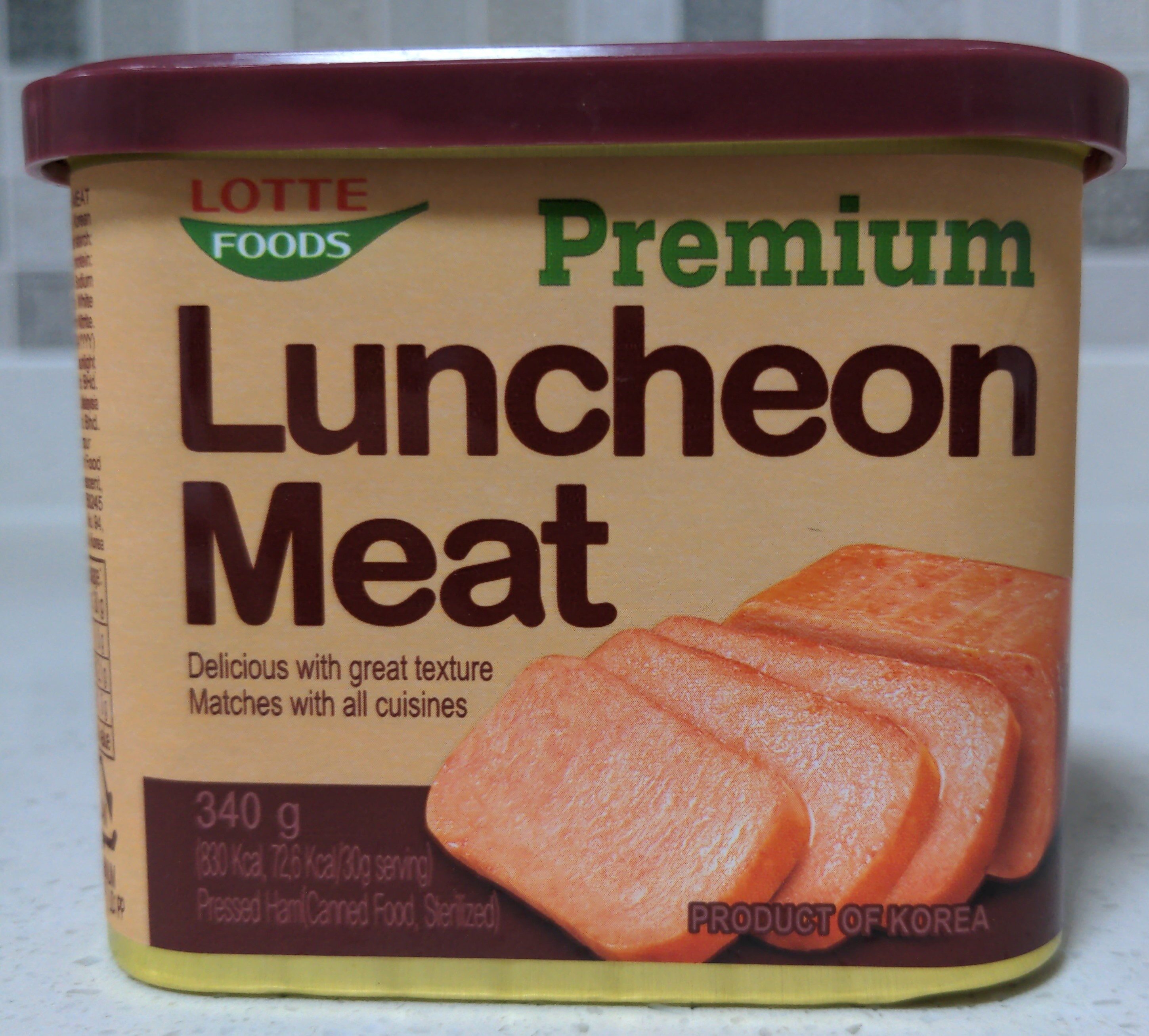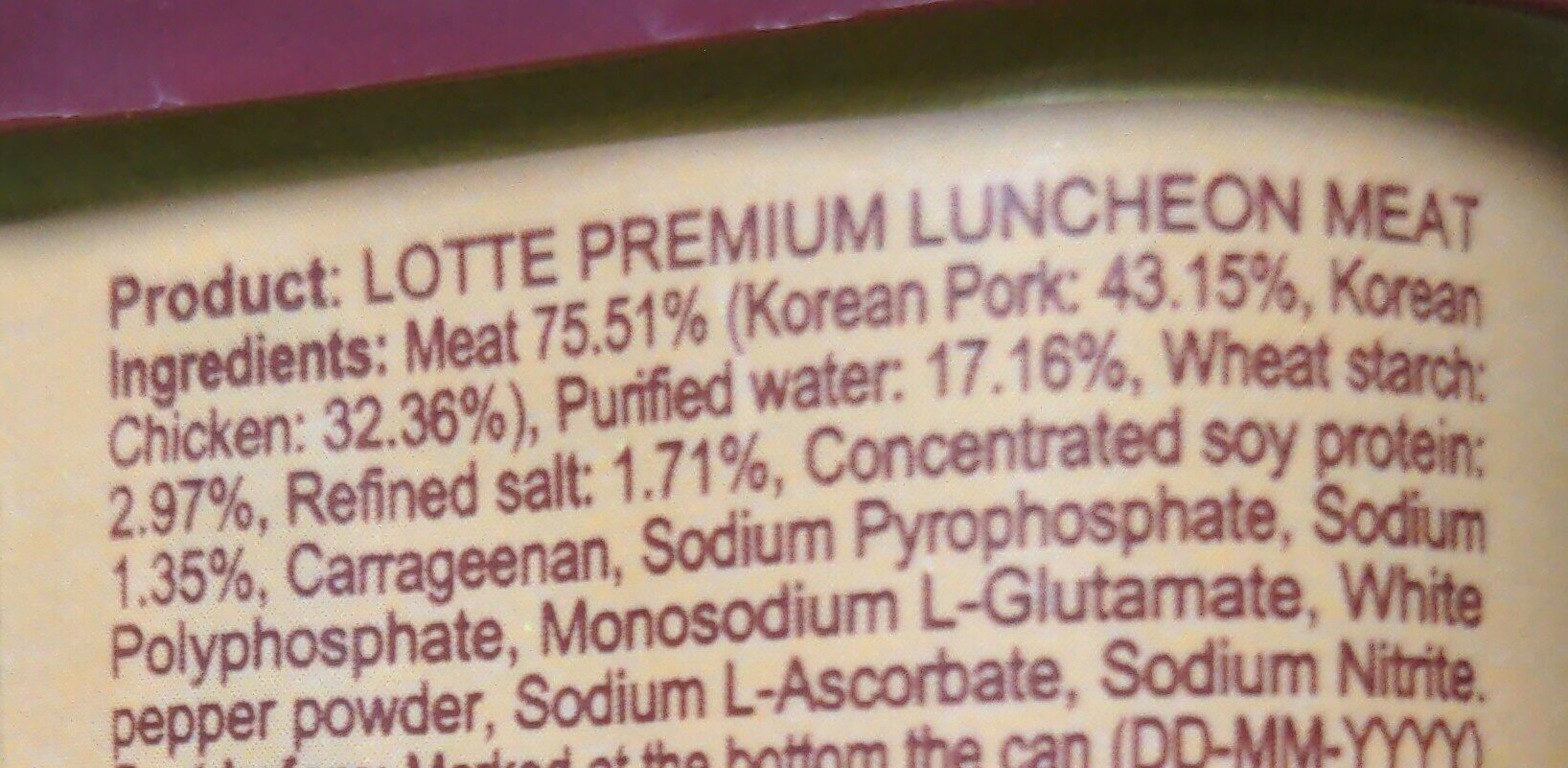Premium Luncheon Meat - Lotte Foods - 340g
Barcode: 8801123600328 (EAN / EAN-13)
Quantity: 340g
Packaging: CAN ALUMINUM, LABEL PP, LID PP
Brands: Lotte Foods
Categories: Canned foods, Meats and their products, Meats, Canned meats
Labels, certifications, awards: HACCP
Origin of ingredients: Chicken from Korea, Pork from Korea, Product of Korea
Countries where sold: Singapore
Matching with your preferences
Report a problem
Data sources
Product added on by ibwocoruytrc
Last edit of product page on by ibwocoruytrc.
If the data is incomplete or incorrect, you can complete or correct it by editing this page.













